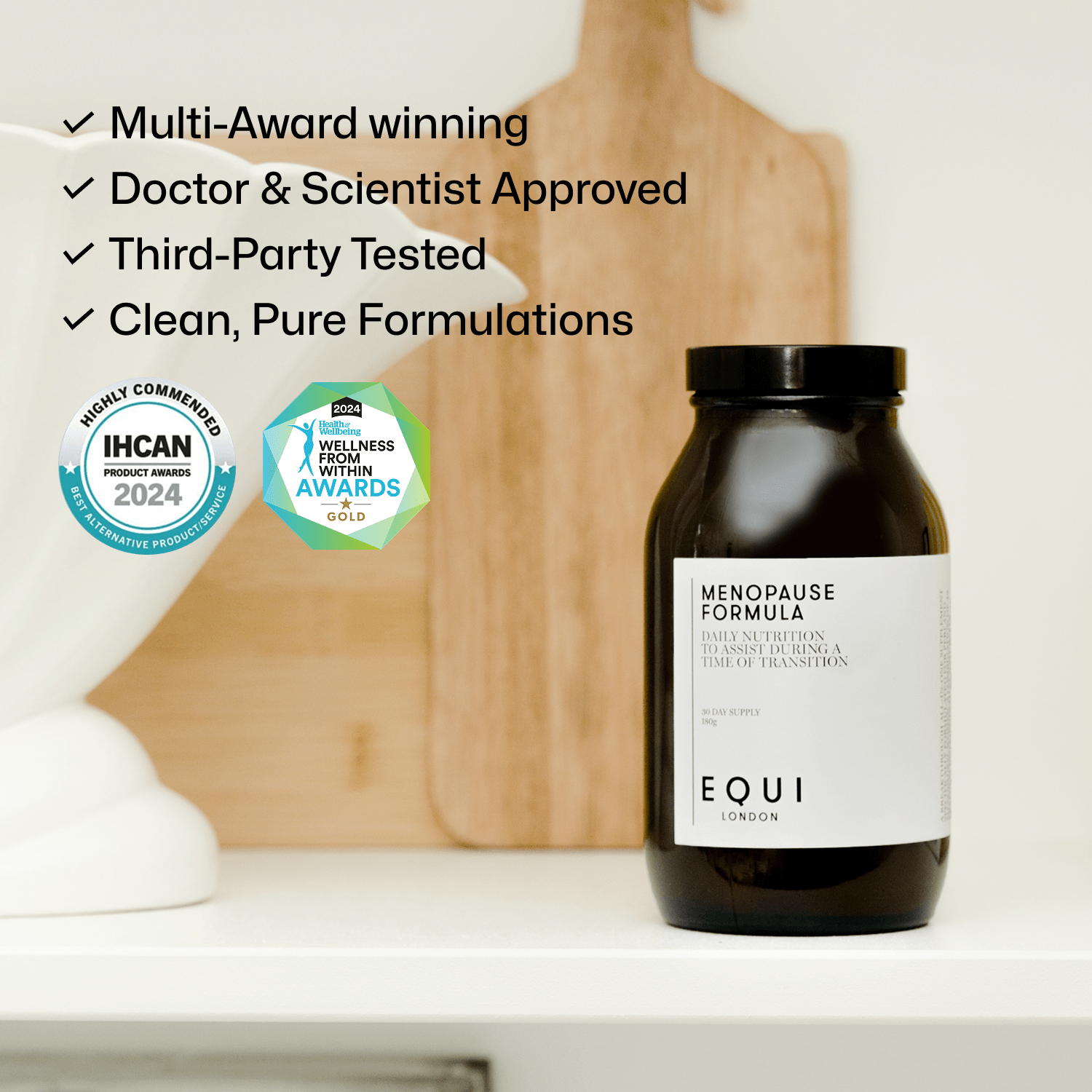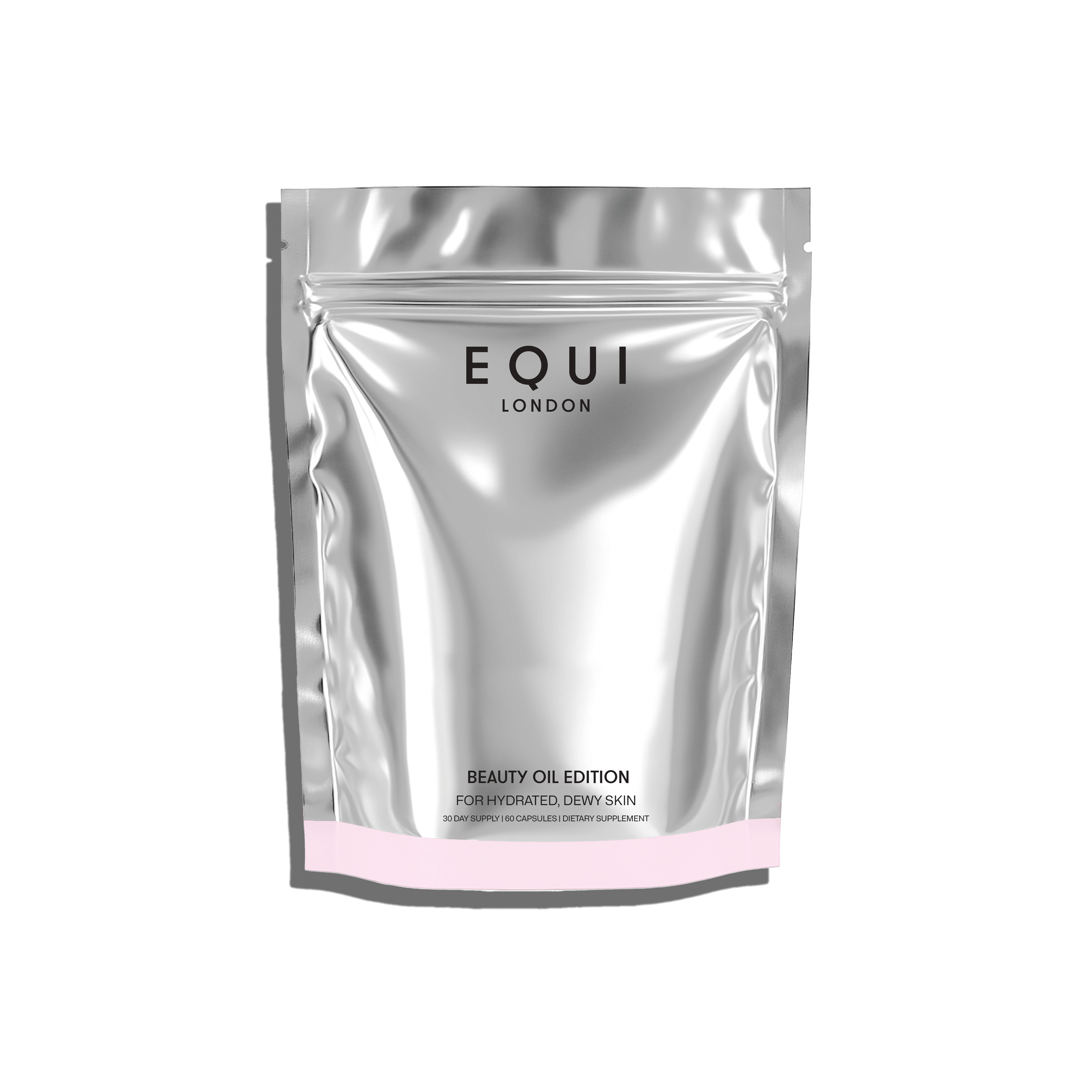When it comes to prenatal nutrition, ensuring that both mother and baby receive the highest quality nutrients is essential. Pregnancy places unique demands on the body, making it more important than ever to prioritise optimal nutrient intake. However, not all vitamins and minerals are created equal. The body’s ability to absorb and use these nutrients can vary based on their form. This is where TRAACS™ minerals—used in our Pregnancy Formula—stand out as a game-changer. These minerals are chelated, meaning they have been bound to amino acids, improving their bioavailability and absorption, while reducing digestive discomfort. In this blog, we will explore the science behind chelated minerals and how they ensure better absorption and effectiveness. With specific focus on TRAACS™ minerals, we’ll look at how each one included in Pregnancy Formula plays a vital role in supporting a healthy pregnancy. From zinc bisglycinate for immune function to Ferrochel® for optimised iron intake, these carefully chosen minerals are a key part of the holistic approach to prenatal health. Chelation is a process in which minerals are bound to amino acids such as glycine. This process makes them easier for the body to absorb, as the minerals are more stable and protected against compounds that might otherwise inhibit their absorption. TRAACS™ minerals, a specific brand of chelated minerals, have been rigorously tested and are backed by scientific research to ensure their superior absorption, bioavailability, and purity.
During pregnancy, when nutritional needs are heightened and the body requires more support than usual, chelated minerals provide a higher level of reassurance. With their improved absorption and purer quality, they offer peace of mind to expectant mothers looking for the best prenatal nutrition. These minerals are also traceable, which means we know exactly where they come from—adding an extra layer of quality control and safety, which is crucial during pregnancy. Pregnancy places a significant strain on the body’s resources, requiring higher amounts of key nutrients such as zinc, iron, copper, and manganese. While these minerals can be found in food sources, the chelated forms used in supplements are much easier for the body to absorb, ensuring that both the mother and baby receive the nutrients they need.
The TRAACS™ minerals used in Pregnancy Formula are highly bioavailable, meaning the body can absorb and use them more efficiently than standard mineral forms. This is especially important in pregnancy when both the mother’s and baby’s needs must be met. The chelation process also ensures these minerals are gentle on the digestive system, reducing the risk of gastrointestinal discomfort—a common issue during pregnancy. From supporting immune function and promoting healthy development to reducing oxidative stress and supporting bone health, TRAACS™ minerals are a superior choice for any prenatal supplement. By including zinc bisglycinate, copper bisglycinate, manganese bisglycinate, and Ferrochel® in our Pregnancy Formula, we offer an all-in-one solution that ensures better health and wellness for both mother and baby.
What Are Chelated Minerals and Why Are They Important in Pregnancy?
Chelated minerals play a critical role in prenatal nutrition, ensuring that both mother and baby receive the essential nutrients they need for optimal health. During pregnancy, the body's nutritional demands increase, but not all minerals are easily absorbed. Chelation, the process of binding minerals to amino acids like glycine, helps address this challenge by improving the bioavailability of these minerals, making them easier for the body to absorb and use. This is especially important for expectant mothers, who need reassurance that their supplements are of the highest quality. It was certainly a key focus for Alice when formulating this supplement, and why both Alice and Rosie used Pregnancy Formula throughout their own pregnancies!
Chelation protects minerals from anti-nutrients such as phytates, which are naturally found in plant-based foods and can interfere with mineral absorption. By binding to amino acids, chelated minerals bypass these inhibitors, allowing for better absorption in the digestive system. This process mimics how nutrients are naturally delivered in whole foods, enhancing their effectiveness, and minimising digestive discomfort. TRAACS™ minerals, used in our Pregnancy Formula, are an example of chelated minerals that have been scientifically developed to offer superior bioavailability.
The purity of TRAACS™ minerals is another key advantage, especially during pregnancy when it is crucial to know exactly what you are consuming. These minerals are rigorously tested for quality, ensuring they are free from contaminants and sourced from trusted suppliers. The traceability of these minerals provides added peace of mind, as every batch can be traced back to its origin, giving expectant mothers confidence in the safety and reliability of their supplements. Scientific research supports the use of chelated minerals, particularly in prenatal nutrition. TRAACS™ minerals have been extensively studied, showing higher absorption rates and effectiveness compared to non-chelated forms, of which we delve into below. This research-backed assurance ensures that mothers are receiving superior-quality nutrition when it matters most.
Chelated minerals like TRAACS™ minerals found in Pregnancy Formula are bound to amino acids, making them more bioavailable, better absorbed, and resistant to anti-nutrient interference. Their purity, traceability, and solid scientific backing make them an ideal choice for supporting the health and well-being of both mother and baby during pregnancy. By opting for Pregnancy Formula which contains chelated minerals, expectant mothers can feel confident that they are receiving the highest level of care and nutrition during this vital stage of life. Shop here.
TRAACS™ Zinc Bisglycinate - Supporting Immune Function & Healthy Foetal Development
Zinc bisglycinate plays a crucial role in pregnancy, contributing to essential processes like immune function, cellular growth, and foetal development. Despite its importance, over 40% of pregnant women and one-third of breastfeeding women don’t consume adequate amounts of zinc from diet, according to studies, due to dietary limitations or poor absorption. Anti-nutrients can often block the absorption of dietary zinc which is why the chelated form of zinc, like TRAACS™ zinc bisglycinate, offers superior absorption compared to non-chelated forms, such as zinc gluconate. Research shows that zinc bisglycinate is up to 43% more bioavailable than zinc gluconate, making it a more effective option to reduce the risk of deficiency during pregnancy (1). And we can’t argue with the science!
Zinc plays a central role in supporting nearly 100 different enzymes in the body, underscoring its importance in pregnancy. One of its primary functions is to support immune health, which is particularly vital during pregnancy when the immune system undergoes changes to accommodate the developing baby. Zinc helps maintain a balanced immune response, reducing the risk of infections that can complicate pregnancy. In addition to immune function, zinc supports the body’s antioxidant defence system. It helps protect cells from oxidative damage, which is essential for both maternal health and foetal development. The antioxidant properties of zinc contribute to the prevention of cellular stress and inflammation, promoting overall well-being for both mother and baby. Furthermore, zinc supports protein metabolism, a critical function during pregnancy as the body requires more protein to support foetal growth and maternal tissue development. Zinc also contributes to fertility and reproduction, supporting the development of the reproductive system and hormone production, which are essential for a healthy pregnancy in the first place, making Pregnancy Formula a good option during preconception too.
Finally, zinc also plays a significant role in digestive health and skin health – key systems our Formulas each address through our total-body support ethos. Adequate zinc levels can promote better digestion by supporting enzyme function in the gastrointestinal tract, which is important as pregnancy can often bring digestive challenges. Additionally, zinc is known to aid in skin health and wound healing, which is beneficial during and after pregnancy, helping the body recover from the physical changes and stress of childbirth.
Normal growth and development during pregnancy, childhood, and adolescence are highly dependent on adequate zinc levels. Zinc is essential for DNA synthesis and cell division, processes that are critical for foetal growth. One study found that zinc supplementation in infants and early childhood significantly increased growth outcomes, further highlighting the importance of ensuring adequate zinc intake during pregnancy and breastfeeding (2).
Given the challenges many pregnant women face in meeting their daily zinc needs, the chelated form of zinc bisglycinate offers an effective solution. By binding zinc to the amino acid glycine, the chelation process enhances its absorption in the body, even in the presence of dietary inhibitors such as phytates. This makes zinc bisglycinate a superior option in prenatal supplements, like those in our Pregnancy Formula, ensuring that both mother and baby receive the full benefits of this essential mineral. Improved absorption reduces the risk of zinc deficiency, promoting immune function, growth, and development, while supporting overall health and well-being throughout pregnancy.
Ferrochel® - Optimising Iron Absorption Without Digestive Discomfort
Ferrochel®, the ferrous bisglycinate chelate used in Pregnancy Formula, is an advanced form of iron designed to be highly bioavailable and easily absorbed by the body. During pregnancy, iron is a critical nutrient for both mother and baby. It plays an essential role in the formation of haemoglobin, the protein responsible for transporting oxygen throughout the body. Adequate iron levels are crucial for maintaining energy levels, supporting foetal growth, and preventing iron-deficiency anaemia, a common concern during pregnancy. Ferrochel® offers significant advantages over other forms of iron, particularly in terms of absorption and gastrointestinal tolerance, making it an ideal choice for expectant mothers.
Iron deficiency anaemia occurs when the body doesn’t have enough iron to produce haemoglobin, leading to symptoms such as fatigue, weakness, and shortness of breath. This can be especially problematic during pregnancy when blood volume increases to support the growing foetus, and the demand for iron rises significantly. Research has shown that up to 52% of pregnant women worldwide suffer from iron-deficiency anaemia, underscoring the importance of effective iron supplementation (3). Traditional iron supplements, such as ferrous sulphate, often come with unpleasant side effects like constipation, nausea, and stomach discomfort, which can discourage consistent use.
Ferrochel® ferrous bisglycinate chelate is a highly bioavailable form of iron that addresses these concerns. The chelation process involves binding iron to glycine, an amino acid that enhances its absorption in the intestines while protecting it from inhibitors found in food, such as phytates. Studies have shown us that ferrous bisglycinate has up to 5 times greater absorption than ferrous sulphate, the most commonly prescribed form of iron (4). This means that Ferrochel® delivers more iron to the body with less risk of deficiency, ensuring both mother and baby receive adequate oxygen and energy to support a healthy pregnancy.
In addition to its superior absorption, Ferrochel® is known for being gentle on the stomach. One of the most common complaints about traditional iron supplements is the gastrointestinal side effects, particularly constipation. However, research has shown that Ferrochel® ferrous bisglycinate is associated with a significant reduction in these adverse effects. Studies have determined that supplementation with Ferrochel® in pregnant women not only leads to a greater improvement in haemoglobin levels but also reduces the occurrence of gastrointestinal side effects by 64% when compared to alternative forms of iron salts (5). This makes it a more comfortable and reliable option for women who may have experienced discomfort with other iron supplements.
The benefits of Ferrochel® extend beyond preventing iron-deficiency anaemia. By ensuring adequate iron levels, it helps maintain energy and stamina during pregnancy, which is vital for both maternal well-being and foetal development. Additionally, the enhanced absorption of iron provided by Ferrochel® reduces the risk of iron overload, a concern with less bioavailable forms of iron that may accumulate in the body.
Ferrochel® ferrous bisglycinate chelate is an ideal form of iron for pregnant women, offering superior absorption and fewer gastrointestinal side effects compared to traditional iron salts like ferrous sulphate. By supporting healthy haemoglobin levels, it plays a critical role in oxygen transport, energy production, and foetal growth, while minimising the discomfort often associated with iron supplementation. EQUI’s Pregnancy Formula includes 20mg of this advanced form of iron to ensure that expectant mothers receive the best possible nutritional support during this vital stage of life. Shop here.
Copper and Manganese Bisglycinate - Vital Trace Minerals
When it comes to pregnancy, much emphasis is placed on well-known nutrients such as folate, iron, and zinc. However, lesser-known minerals like copper and manganese play equally vital roles in supporting both maternal and foetal health. Pregnancy Formula incorporates TRAACS™ copper bisglycinate and manganese bisglycinate, two chelated forms of these essential minerals, to enhance their absorption and bioavailability during this critical time.
Firstly, copper is a trace mineral that serves multiple functions in the body, particularly during pregnancy. One of its primary roles is in the formation of collagen, a protein essential for the structural integrity of tissues, including skin, blood vessels, and organs – especially important in foetal development. Copper is also crucial for the cardiovascular system, as it helps maintain healthy blood vessels and supports proper heart function. Research has indicated that adequate copper levels are essential for the normal development of the foetus’s cardiovascular system, with deficiencies potentially leading to developmental issues (6). The chelated form of copper bisglycinate enhances absorption by binding copper to glycine, an amino acid that protects the mineral from inhibitors in food, such as phytates.
Manganese is another crucial mineral often overlooked in prenatal nutrition. It plays a vital role in bone development, enzyme activation, and the metabolism of carbohydrates, proteins, and fats. Manganese is particularly important during pregnancy, as it contributes to the formation of foetal bones and cartilage. Research has suggested that adequate manganese levels are essential for the proper development of the foetal skeleton and overall growth (7). Like copper, TRAACS™ manganese bisglycinate is chelated to enhance absorption. The chelation process protects manganese from anti-nutrients found in foods, allowing for improved bioavailability.
Both copper and manganese work synergistically in various metabolic pathways. For example, they are involved in antioxidant defence systems that protect cells from oxidative stress, which can increase during pregnancy. By including both copper bisglycinate and manganese bisglycinate in Pregnancy Formula, women can support their overall health while ensuring their bodies meet the increased demands of pregnancy.
Disclaimer: All of the information on this website is provided for general information only, it should not be treated as a substitute for the medical advice of your own doctor or any other health care professional providing personalised nutrition or lifestyle advice. If you have any concerns about your general health, you should contact your local health care provider. No one diet or supplement regime works for everyone and you should always seek help from a GP and registered health expert before making changes to your diet, or before introducing any supplements. This is especially important when pregnant.
References
- Gandia P, Bour D, Maurette JM, Donazzolo Y, Duchène P, Béjot M, Houin G. (2007). A bioavailability study comparing two oral formulations containing zinc (Zn bis-glycinate vs. Zn gluconate) after a single administration to twelve healthy female volunteers. Int J Vitam Nutr Res. 77(4), pp. 243-8.
- Liu E, Pimpin L, Shulkin M, Kranz S, Duggan CP, Mozaffarian D, Fawzi WW. (2018). Effect of Zinc Supplementation on Growth Outcomes in Children under 5 Years of Age. Nutrients. 20;10(3), pp. 377.
- Abu-Ouf NM, Jan MM. (2015). The impact of maternal iron deficiency and iron deficiency anemia on child's health. Saudi Med J. 36(2), pp. 146-9.
- Bovell-Benjamin AC, Viteri FE, Allen LH. (2000). Iron absorption from ferrous bisglycinate and ferric trisglycinate in whole maize is regulated by iron status. Am J Clin Nutr. 71(6), pp. 1563-9.
- Jordie A J Fischer, Arlin M Cherian, Jeffrey N Bone, Crystal D Karakochuk, (2023) .The effects of oral ferrous bisglycinate supplementation on hemoglobin and ferritin concentrations in adults and children: a systematic review and meta-analysis of randomized controlled trials, Nutrition Reviews, 81 (8), pp. 904–920.
- Grzeszczak K, Kwiatkowski S, Kosik-Bogacka D. (2020). The Role of Fe, Zn, and Cu in Pregnancy. Biomolecules. 10 (8), pp. 1176.
- Zota AR, Ettinger AS, Bouchard M, Amarasiriwardena CJ, Schwartz J, Hu H, Wright RO. (2009). Maternal blood manganese levels and infant birth weight. Epidemiology. 20(3), pp. 367-73.












